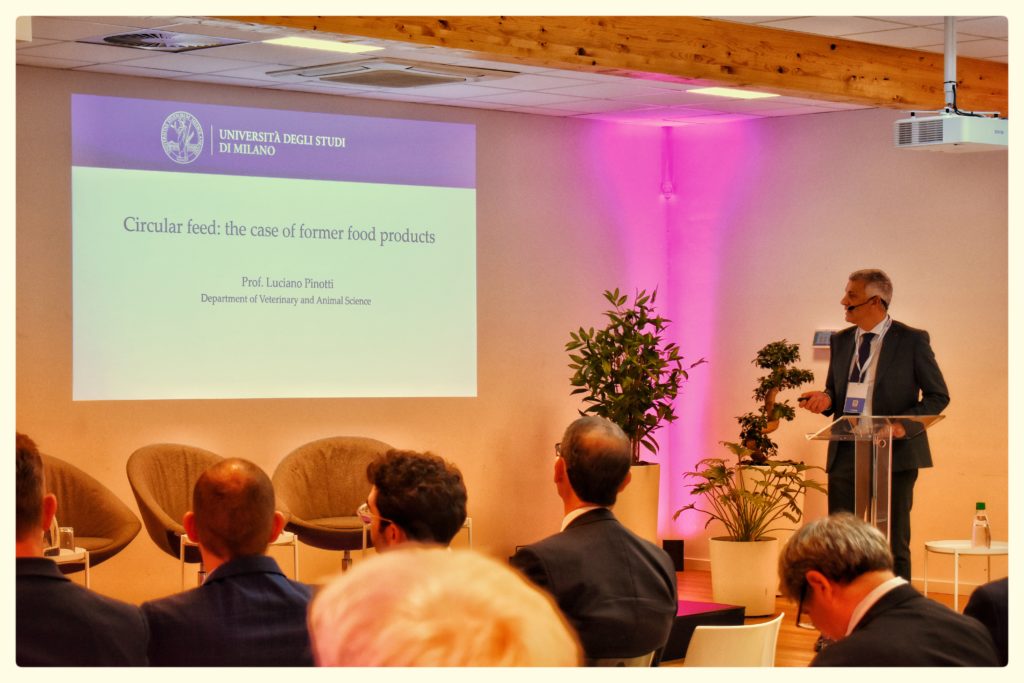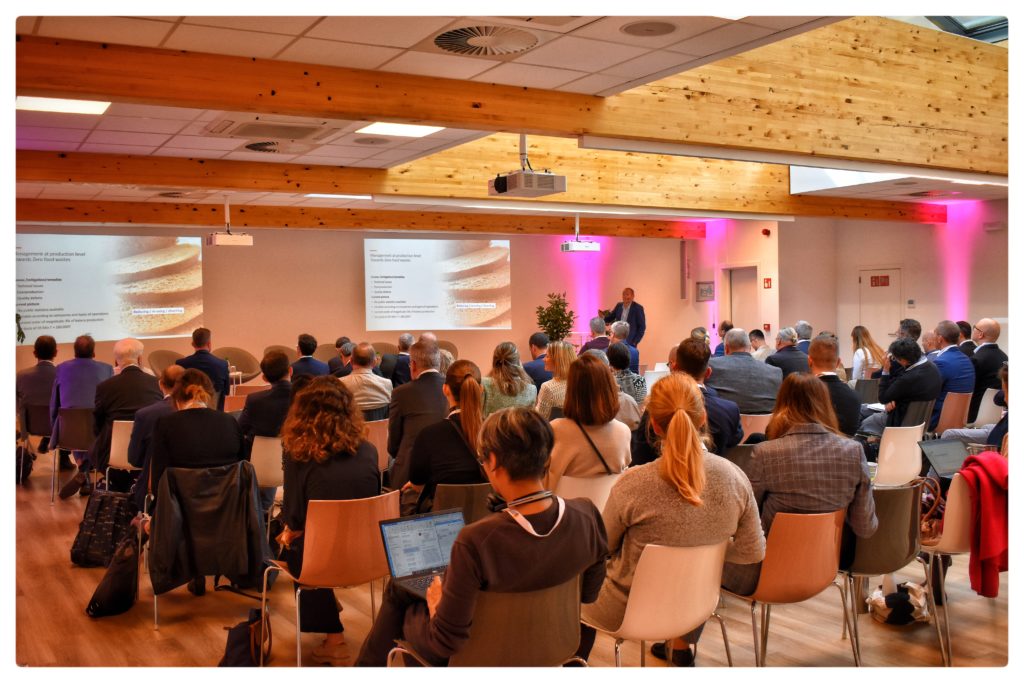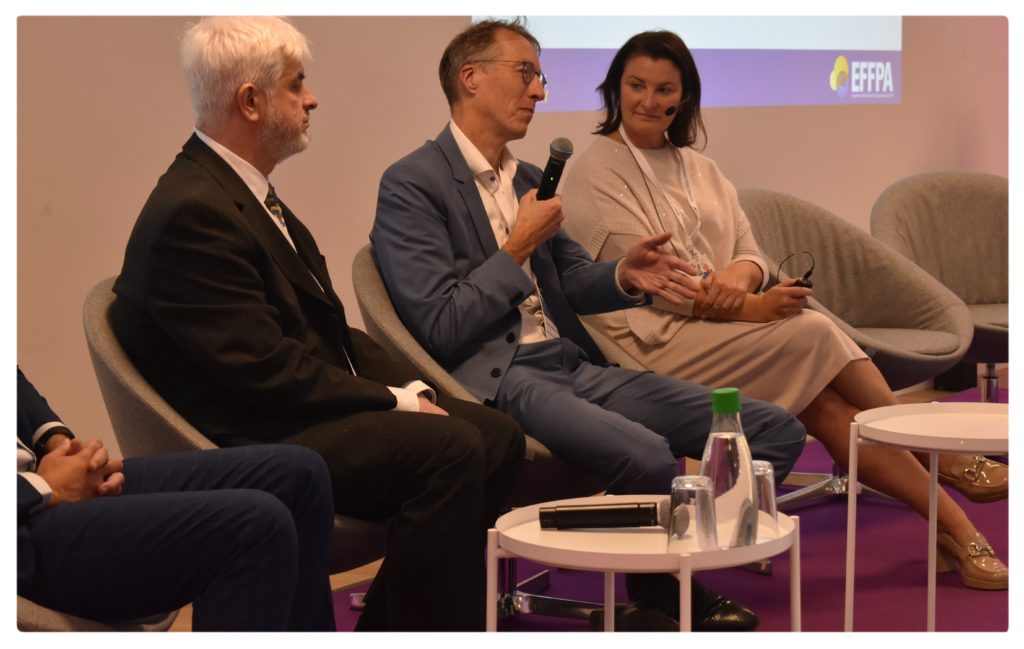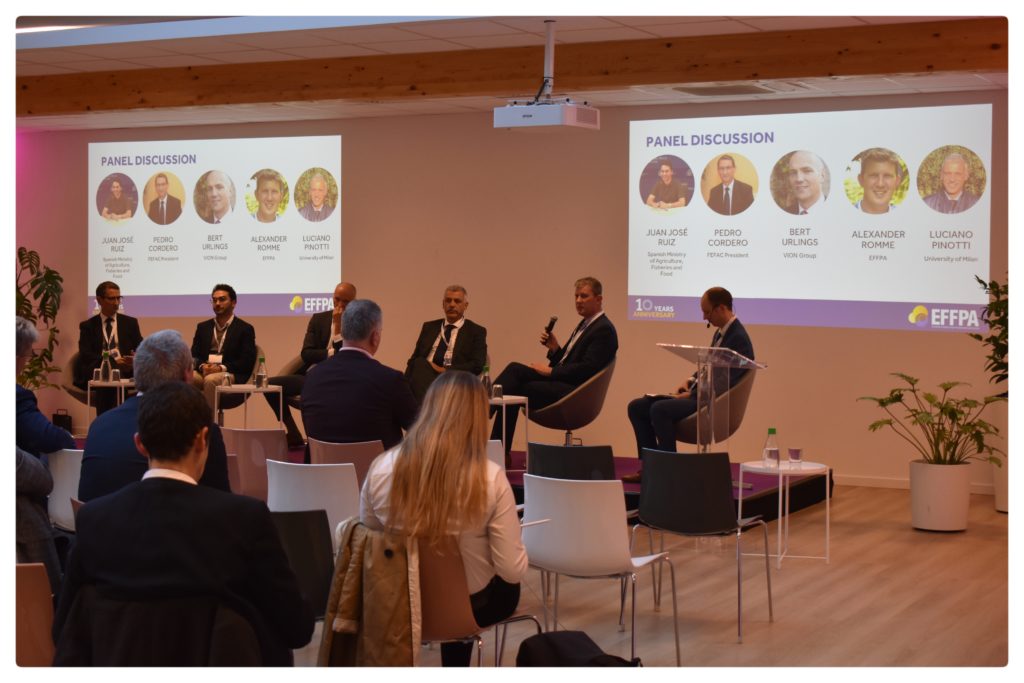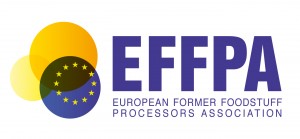On 19 October 2023, the European Former Foodstuff Processor’s Association (EFFPA) marked its 10th anniversary with a celebratory event in Brussels. Former foodstuff processing for animal feed purposes is currently clearly recognised as a business that enables food waste reduction as well as a means to meet sustainability targets in feed manufacturing, such as increasing circularity, reducing the environmental footprint and avoiding food-feed competition. The gathering, moderated by EFFPA Executive Director Anton van den Brink, brought together approximately 80 participants from the European Commission, national representations of member states, stakeholders from the food and feed chain and academia.
In his keynote presentation “Circular Feed: the case of former foodstuffs”, Professor Luciano Pinotti from the University of Milano stressed that former foodstuffs are especially suitable in feed for young animals like piglets where they can be incorporated at levels up to 30% without negative effect on body weight, daily gain, feed conversion ratios or carcass quality compared to cereals-based feed. The high level of fat and the higher glycaemic index favour also feed intake. Former foodstuffs are also suitable in feed for finisher pigs, poultry and dairy cows with positive impact on milk yield. He highlighted ongoing research on animals’ behaviour in relation to relatively higher levels of caffeine and theobromine in certain former foodstuffs compared to other feed materials, as well as research on possible effects of former foodstuffs on abatement of enteric methane emissions by cattle.
In the first session, with speakers from the European Commission, Wageningen University and the International Association of Plant Bakers (AIBI), the focus was on the role of former foodstuffs processors in promoting sustainable food production and preventing food waste. Key points included discussions on collaborative efforts between the European Commission and the EU Food Waste & Food Losses Platform. These efforts aimed to align with Sustainable Development Goals and involved standardised data reporting and donation guidelines. The European Commission presented the legislative proposal on setting food waste reduction targets, triggering the need for action by Member States. The session reiterated the recognition that former foodstuffs used as feed are a means to reduce food waste, while the increasing challenge is to deal with the increasing use of the biogas sector of food losses that could have had a purpose in feed.
In the second session, with speakers from the Spanish Ministry of Agriculture, FEFAC and VION Group, the discussion focused on the feed use of former foodstuffs. There is a role for former foodstuffs to help the feed and livestock sectors to achieve sustainability goals, for example by lowering the carbon footprint, however participants underlined the importance of not compromising on safety requirements. FEFAC highlighted its ambition to push for a ‘circular feed culture’ together with relevant circular feed actors, allowing for improved analysis of potential volumes, reflect on metrics & indicators and consider legal aspects that deserve discussion.
EFFPA President Alexander Romme: “In the past 10 years, the European former foodstuff processing sector has been able to clearly position itself as a solution provider in a sustainable food system, reducing food waste and boosting sustainable livestock production. Going forward, our sector will continue its drive for innovation and expand its activities, while respecting the parameters set for food and feed safety.”
